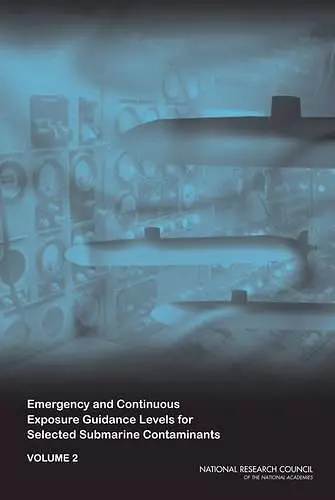Emergency and Continuous Exposure Guidance Levels for Selected Submarine Contaminants
Volume 2
National Research Council author Board on Environmental Studies and Toxicology author Division on Earth and Life Studies author Committee on Toxicology author Committee on Emergency and Continuous Exposure Guidance Levels for Selected Submarine Contaminants author
Format:Paperback
Publisher:National Academies Press
Published:9th Jun '08
Currently unavailable, and unfortunately no date known when it will be back

U.S. Navy personnel who work on submarines are in an enclosed and isolated environment for days or weeks at a time when at sea. To protect workers from potential adverse health effects due to those conditions, the U.S. Navy has established exposure guidance levels for a number of contaminants. In this latest report in a series, the Navy asked the National Research Council (NRC) to review, and develop when necessary, exposure guidance levels for 11 contaminants. The report recommends exposure levels for hydrogen that are lower than current Navy guidelines. For all other contaminants (except for two for which there are insufficient data), recommended levels are similar to or slightly higher than those proposed by the Navy. The report finds that, overall, there is very little exposure data available on the submarine environment and echoes recommendations from earlier NRC reports to expand exposure monitoring in submarines.
Table of Contents- Front Matter
- Summary
- 1 Introduction
- 2 Ammonia
- 3 Benzene
- 4 2,6-Di-tert-butyl-4-nitrophenol
- 5 Freon 12
- 6 Freon 114
- 7 Hydrogen
- 8 2190 Oil Mist
- 9 Ozone
- 10 Surface Lead
- 11 Toluene
- 12 Xylene
- Appendix: Biographic Information on the Committee on Emergency and Continuous Exposure Guidance Levels for Selected Submarine Contaminants
- Glossary <
ISBN: 9780309112734
Dimensions: unknown
Weight: unknown
332 pages